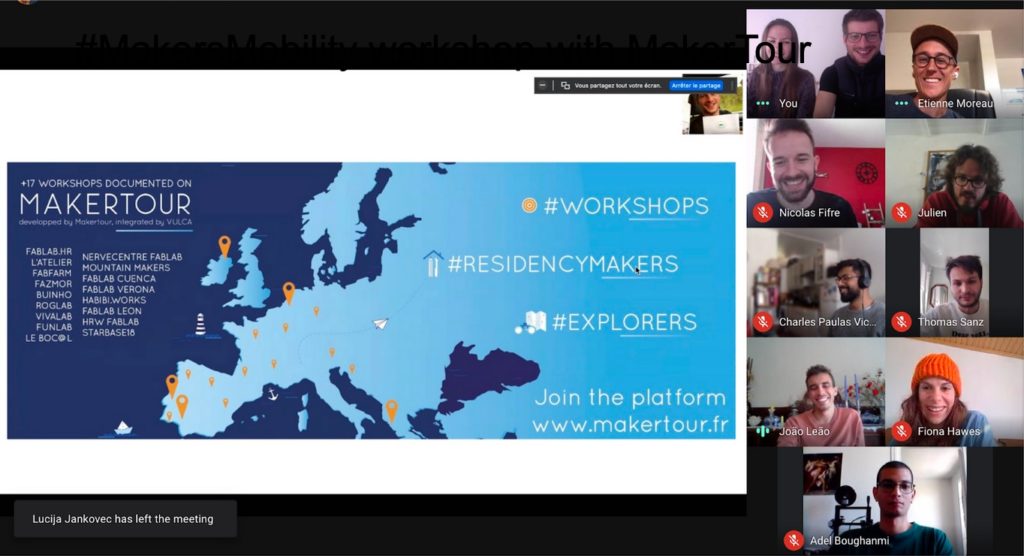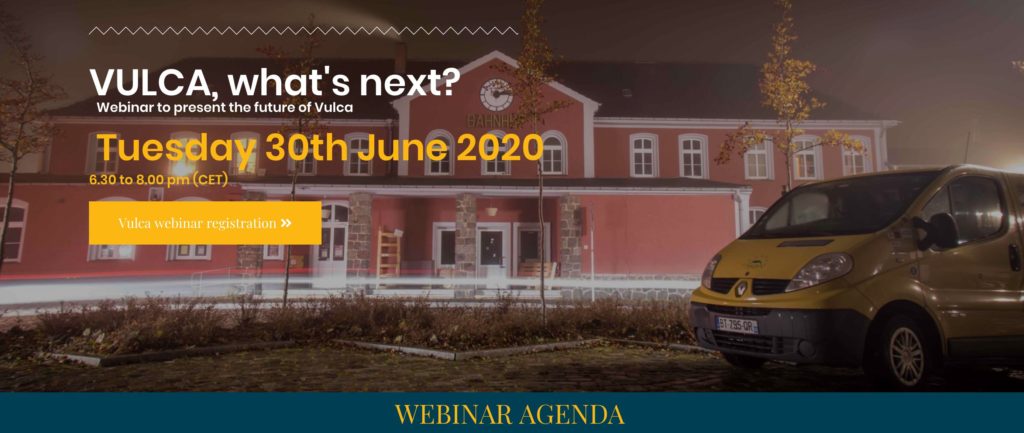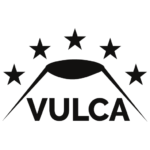#MakersForSolidarity

Since the end of February 2022 and the commencement of war in Ukraine, Vulca started working more closely with the makers’ community to search for solutions for displaced Ukrainian makers, and those who are still in Ukraine. In this article we will share what was done, and how you can help.
The development of a platform dedicated to makers’ mobility.

In 2021, Vulca merged with a French NGO – MakerTour – that gave us the platform they developed (https://www.makertour.fr). This platform was initially used for documenting fablabs and makerspaces all over the world with an emphasis on different projects they run within their space. As a Vulca NGO, we are very interested in assessing existing programs covering makers mobility and in facilitating the mobility of makers, so we started to extend this documentation, to eventually create a go-to platform for makers looking for residency opportunities. The infrastructure this platform had was already a good start for us, and we found a way to use it for promoting makers’ residencies. However, we want to further develop the platform, adding new functionalities to help makerspaces highlight their residency offers and to help makers find them. The objectives of such development : Our main objective is to identify if such a platform can be useful for makers and makerspaces, and how to make the platform more usable for residencies. Over the past year, we have been conducting rather interviews with independent makers and makerspace managers, to try to understand what are the needs of the community, and how the platform should evolve to meet those needs. Following the initial feedback, we identified the necessary steps: Developing a methodology to collect the users’ feedback in an analyzable way; for that we will make a first round of interviews with vulca members. Based on this methodology we will extend the interviews to all users of the platform, revisiting the methodology if necessary. With this data we will define a list of news functionalities we will later develop on the platform. We will organize a focus group during our seminar to check these news functionalities before developing them. What has been achieved so far? Few months ago, a group of MSCc students from Rennes School of Business contacted Vulca because they were looking for a real case study project, where they contribute to solving a problem that could have a positive impact on society. They got interested in the MakerTour project, so we decided to collaborate with them in the improvement of this platform. It is important to say that for the development of this research the participation of students was crucial, especially taking into consideration their knowledge in Creative Project Management, Culture and Design. Their conclusion that can be found in the report is the following one : To answer this question, we have been organizing a series of interviews with experienced and new users of the platform. The plan is to interview at least 5 makers and 5 makerspace managers to identify their needs. So far, three of each have been interviewed and we are using these insights to create Customer Journey Maps that will help us later to suggest the new functionalities of the platform. The reasoning behind focusing on the functionalities to improve visibility and accessibility of the Maker Residencies is to better solve the problem Vulca and MakerTour are facing. In accordance with original interactions with the teams behind the projects and with the first results, the makers and makerspaces agree that the biggest change that the Makertour platform should undergo is to ease-of-use and to share the experiences with others. From the group of students. After 5 months of work, this group of students was able to define the methodology for Vulca on how to collect users’ feedback. They designed the questions for the interview, and developed the pipeline of collecting and analyzing data. In the future, we will continue organizing the interviews to collect more feedback that will eventually lead to development of new functionalities. If you have used the platform makertour.fr to find residency’s opportunity feel free to contact us on Facebook or Twitter. Your experience will be helpful to develop a platform dedicated to makers’ mobility. During our next Vulca seminar we will present the result.
Vulca What’s next?

VULCA, what’s next? Webinar to present the future of Vulca Tuesday 30th June 2020 6.30 to 8.00 pm (CET) Vulca webinar registration WEBINAR AGENDA VULCA NEW BOARD 10 minutes – Lead by Nicolas Fifre Our historical board will be changing after 5 years. Since the beginning of Vulca, the members of our board have been: Nicolas Fifre, Co-Founder and President, Louis Reignaud, Treasurer, and Marjorie Ansion, Secretary We are very happy that they have been part of Vulca journey, contributing to the development of the association. However, their life started moving into a new exciting direction making them less involved in the association’s activities. That is why they would like to leave their respective places to people that will bring new energy and involve more into the association to better represent the Community. Discover who are the new faces of Vulca Board Vulca webinar registration VULCA SEMINAR 20 minutes – Lead by Aleksandra Sljukic and Roberto Vdovic Each year Vulca organises a seminar in another country to create time and space where the community can meet and discover the local makers movement. This year, we had to postpone it, but we have some good news and announcements. With the team from Fablab.hr and Croatia, we will organise the 4th seminar in Zadar, Croatia. Join us to learn more about the agenda, how to participate or become a volunteer. Vulca webinar registration VULCA TOUR 10 minutes – Lead by Alexandre Rousselet With 150 000 kilometers travelled and more than 330 M_Hackerspaces, Fablabs and Open Workshops visited, it is time to prepare the future of VULCA TOUR. Join us to know where the next road will take us and how to make sure we visit your space. Vulca webinar registration VULCA EXPERIMENTA 40 minutes – Lead by Thomas Sanz We are so excited to introduce you our new tool to developp the M-Hackers Mobility in Europe; With Experimenta we will go in the heart of M_Hackers in residency and share to you the best practice found ! Don’t miss our webinar to learn more about it! Vulca webinar registration We will conclude this webinar with Q&A to answer all of your questions. Vulca webinar registration Make sure to register not to miss the notification for the webinar
The first connection, the hardest one

Since the beginning, Vulca has been regularly requested to create connections between people and/or spaces. If at the beginning we did “on the go”, gradually we have developed a specific methodology with a focus on human proximity. Alquimétricos, maker organization originating from Brazil, contacted Vulca to help with establishing new connections in Europe. This is the story of how we did it. 2020 Update: Due to COVID-19 pandemic context, most events in Europe and around the world were postponed or canceled. Alquimétricos was invited to be part of Vulca network seminar in April in Zadar, Croatia. As this and other booked events didn’t have place, Alquimétricos is reaching the European community through an online content channel supported via crowdfunding at: https://en.goteo.org/project/toys-for-quarantine Iberic Peninsule the first step of the european development of Alquimétricos Alquimétricos was created with a specific concern: take quality, effective, inexpensive, and fun STEAM educational resources to the masses. The CNC revolution has come with a great promise to solve present time’s challenges. Finally, its popularization has broaden the gap between the product design-and-fabrication-capacity and the consumer, leaving in its way more tech obscurity. Therefore, the main challenge they tackle is not to develop more sophisticated technologies but to make them more appropriated to the general public. « …as 7 billion people facing unprecedented tech development, production means have never been so concentrated. But this situation is not a fatality, there are solutions. The collective design and sharing of didactic toys you can make yourself out of virtually anything you find at your local environment can give the opportunity to vulnerable communities’ children to develop most XXI century’s key skill. » European introduction to Alquimétricos started when Fernando, its co-founder, decided to come to Europe for a three-month trip. Initially, his agenda was: An invitation to participate at the Creative Commons Global Summit, La Casa Colorida in Nigrán, an activist collective in the Galician region in Spain had organized for Fernando and for a film-maker artist a residency during which they provided and documented around 5 workshops in educational, permaculture and counter cultural centers around the Pontevedra region. Finally, the MadNess Moroccan collective organized dedicated activities in Casablanca. To complete the European agenda, Fab Lab Benfica was the key link. They introduced Fernando to the Vulca team and from that on, something very powerful happened. Put humanity in connexion Andre Rocha, a manager of FabLab Benfica gave the contact of Alexandre Rousselet, Vulca co-founder, and the Vulca explorer to make connections with other M_Hacker(space)s. When we first got in touch with Fernando, we were amazed with his adventurous spirit – he came all the way from Brazil to Lisbon, and had a plan for three weeks only. Counting on « makers will recommend makers » really paid of as we quickly managed to make his 3 months full of experiences. We selected contacts on his itinerary, based on the map we created and on list of contacts. Our methodology to gather the large number of people is very simple. First, we create a new Whatsapp group to have a dedicated workspace with Fernando as moderator. Secondly, we put in our main Whatsapp groupa link to invite all the people that could be interested in meeting or have activities with Alquimétricos to join in. This kind of “small introduction” was useful to put a personal touch on those connections. Linking people this way is not always easy. In fact, if Whatsapp and email are tools that can reduce the spatial gap between people, the cognitive distance will be still present because, well – they don’t know each other. We assume those human introductions help with creating proximity between them. In this sense, it was easier to invite the second round of people, because most of the time, it was someone from the Alquimétricos’s Whatsapp group who invited their own contacts. In the end, Vulca intervened only at the beginning to push the initiative. Afterward, Fernando was able to lead. A roadshow with particular moments The Vulca core team analyzed the Alquimétricos project, the Iberian tour plan, and started putting Fernando through with Fab Lab contacts along with Portugal and Spain. In virtually every city he was supposed to stop by there was somebody from a Fab Lab to talk to. It was like somebody was putting tile under Fernando’s feet as he walked along. It was him who put Alquimétricos in contact with Vulca and started a chain of goodwill that led us to micro-residencies at FabLab Xtreme at Almendralejo, Badajoz, FabLab Cuenca in Cuenca, VivaLab in Porto and opened contacts in Madrid, Barcelona, Leon and more. Delia and Mickael hosted a 3 day program that included an introductory approach to the Alquimétricos technology, a deeper digital fabrication practice and a open activity in public space synched along a local traditional celebration. Perhaps the most dense maker stop in the trip was Lisbon. LX, as the locals abbreviates, hosts a bunch of FabLabs and makerspaces, each one with a different profile and business model. You can find FabLab Benfica, university-based linked with the education + industrial design grade students population, MILL’s (Makers In little Lisbon) an independant and diverse makerspace proposal downtown, FabLab Lisbon, an industry chamber + town hall joint endeavour, among other alternative garages, art ateliers and more traditional workshops. One of the most innovative discoveries during the trip was… cork! Yes, the ancestral material is especially abundant and developed n Portugal, the #1 world producer of the lightweight buoyant material. Companies like Amorim research their properties and develop crude and composite based solutions used in wine bottles as well as space shuttles. Visiting the factory, witnessing the industrial process and experimenting with the material at the FabLab was a delight and a transformative experience for a designes keen on sustainability Conclusion of Fernando Daguanno
